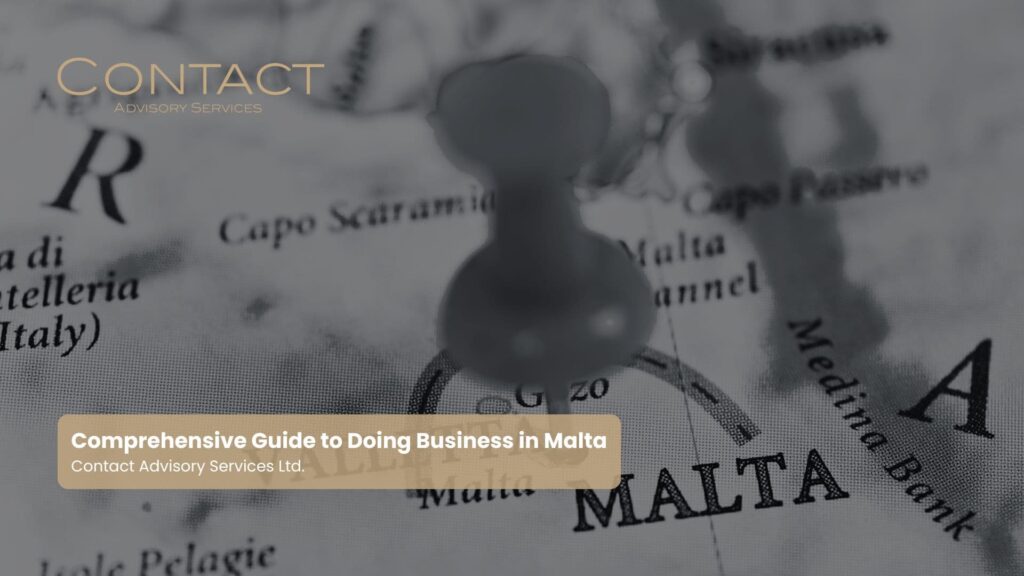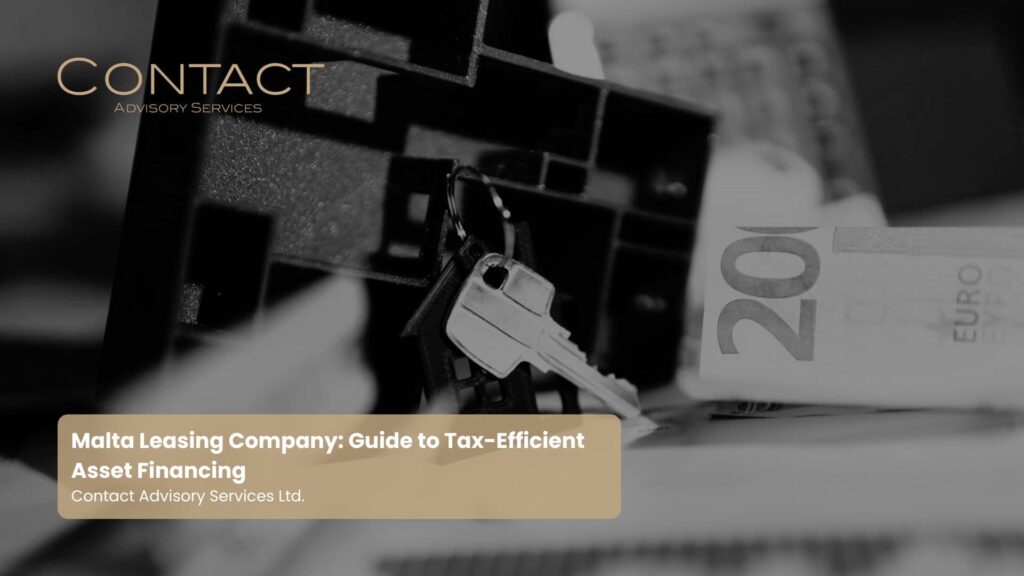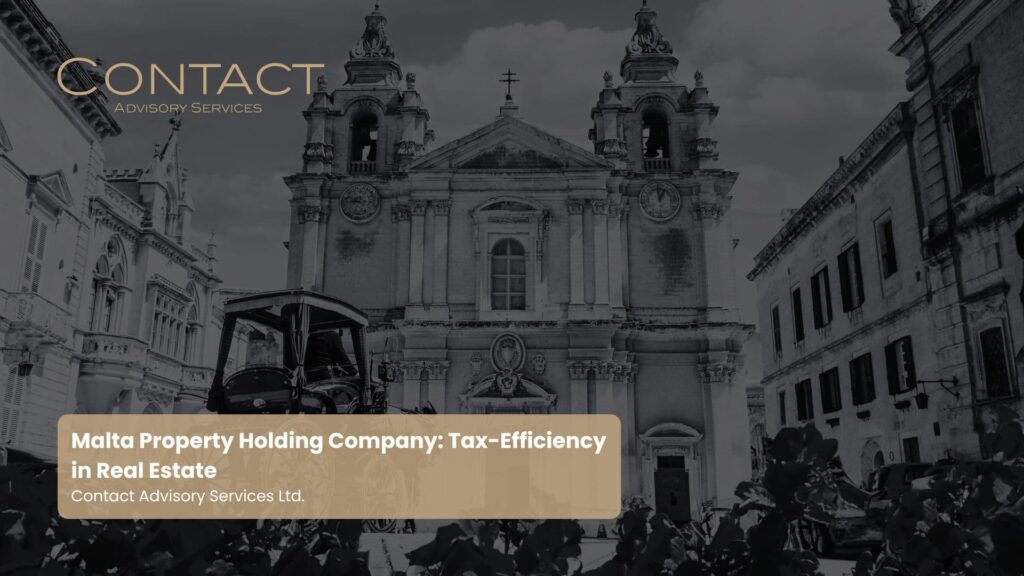I. Introduction: Unlock Your Business Potential with Malta’s Thriving Business Environment
In today’s interconnected global economy, businesses are constantly seeking strategic locations that offer stability, growth opportunities, and a favorable regulatory environment. Malta, a small island nation in the heart of the Mediterranean, has emerged as a compelling destination for entrepreneurs and multinational corporations alike. With its robust economy, strategic location, and business-friendly policies, Malta’s business environment stands out as a beacon of opportunity. According to recent statistics from the National Statistics Office (NSO) Malta, the nation has consistently outperformed the EU average in terms of economic growth, attracting significant foreign direct investment. This article delves into the comprehensive benefits that make Malta an attractive destination for businesses seeking growth and stability, providing insights into its tax regime, skilled workforce, and strategic advantages. At Contact Advisory Services Ltd., authorized by the MFSA, we’ve witnessed firsthand the transformative impact of Malta’s business-friendly ecosystem on our clients’ success.
II. Strategic Location and Connectivity: Gateway to European and Global Markets
Malta’s Central Mediterranean Location: A Strategic Advantage for International Trade
Malta’s geographical position at the crossroads of Europe, Africa, and the Middle East provides unparalleled access to a vast market. This strategic location has historically made Malta a vital hub for maritime trade, and today, it continues to serve as a crucial gateway for businesses looking to expand internationally. The island’s proximity to major European cities allows for efficient logistics and streamlined supply chains, reducing transportation costs and transit times. For businesses engaged in import and export, Malta’s central location translates to a significant competitive advantage. Additionally, its position facilitates easy access to emerging markets in North Africa and the Middle East, opening up new avenues for growth. This strategic positioning is a key factor when considering setting up a company in Malta for international trade.
World-Class Infrastructure and Connectivity: Enhancing Business Operations
Malta’s commitment to developing a modern and efficient infrastructure is evident in its advanced telecommunications network, high-speed internet connectivity, and state-of-the-art transportation systems. The island boasts one of the highest internet penetration rates in Europe, ensuring seamless communication and data transfer for businesses operating within its borders. Malta International Airport, a key gateway, offers direct flights to major European cities, facilitating business travel and enhancing connectivity. The efficient port facilities and robust logistics infrastructure further support the smooth flow of goods, contributing to the overall ease of doing business. The investment in infrastructure proves Malta’s dedication to creating a business friendly enviroment, and is a vital component when considering relocating a business to Malta for EU access.
III. Favorable Tax Regime: Optimizing Business Profitability
Malta’s Competitive Corporate Tax System: Maximizing Returns
One of the most compelling advantages of Malta’s business environment is its competitive corporate tax system. The standard corporate tax rate is 35%, but through Malta’s imputation system, shareholders can effectively reduce their tax burden to as low as 5%. This unique tax structure allows businesses to maximize their returns and reinvest profits, fostering growth and expansion. Furthermore, Malta offers a range of tax incentives for specific industries, such as iGaming, financial services, and maritime, making it an attractive destination for specialized businesses. When structuring a company, it is vital to understand the malta company tax benefits.
Double Taxation Agreements: Expanding International Business Opportunities
Malta has an extensive network of double taxation agreements (DTAs) with over 70 countries, minimizing the risk of double taxation for businesses operating internationally. These agreements provide clarity and certainty regarding tax obligations, allowing businesses to plan their international expansion with confidence. By eliminating or reducing withholding taxes on dividends, interest, and royalties, Malta’s DTAs enhance the profitability of cross-border transactions. This network is a vital asset for any company considering expanding internationally using a Malta holding company.
IV. Skilled Workforce and Business-Friendly Culture: Fostering Growth and Innovation
Highly Educated and Multilingual Workforce: Driving Business Success
Malta’s workforce is highly educated, multilingual, and adaptable, making it a valuable asset for businesses operating in a globalized environment. English is an official language, and many Maltese citizens are proficient in other European languages, facilitating seamless communication and collaboration. The country’s educational institutions produce a steady stream of skilled professionals in key sectors such as finance, IT, and gaming. Additionally, Malta’s pro-business culture encourages innovation and entrepreneurship, creating a dynamic and vibrant business community. The availability of qualified staff is a key benefit when considering employing staff in Malta for a European headquarters.
Pro-Business Government Policies: Supporting Entrepreneurial Ventures
The Maltese government is committed to fostering a business-friendly environment through various initiatives and policies. Malta Enterprise, the government’s economic development agency, offers a range of incentives and support programs for businesses, including grants, tax credits, and advisory services. The government also prioritizes streamlining regulatory processes and reducing bureaucratic hurdles, making it easier for businesses to set up and operate. At Contact Advisory Services Ltd., we’ve seen the positive impact of these initiatives on our clients’ growth. The ease of doing business is one of the main factors when considering registering a company in Malta for EU operations.
V. Robust Regulatory Framework and EU Membership: Ensuring Stability and Security
EU Membership and Regulatory Compliance: Building Trust and Credibility
Malta’s membership in the European Union provides businesses with access to the world’s largest single market, offering unparalleled opportunities for growth and expansion. Operating within the EU’s legal framework ensures compliance with stringent regulatory standards, enhancing trust and credibility among clients and partners. This stability and security are particularly important for businesses in regulated industries such as financial services and gaming. Malta’s adherence to EU directives and regulations provides a level playing field and fosters a transparent and predictable business environment. Operating within the EU’s legal framework provides great stability when considering establishing a financial services company in Malta.
Strong Financial Services Regulation: A Trusted Hub for Investment
Malta’s financial services sector is regulated by the Malta Financial Services Authority (MFSA), a reputable and independent regulatory body. The MFSA’s robust regulatory framework ensures the stability and integrity of the financial services industry, attracting investment from around the world. Malta has become a leading hub for financial innovation, particularly in areas such as blockchain and fintech. The MFSA’s proactive approach to regulation has fostered a culture of compliance and transparency, making Malta a trusted jurisdiction for financial institutions. Contact Advisory Services Ltd., as an MFSA-authorized corporate service provider, ensures that our clients’ operations comply with all relevant regulations.
VI. Key Sectors Thriving in Malta’s Business Environment
Malta’s Booming iGaming Industry: A Leading European Hub
Malta has established itself as a leading European hub for the iGaming industry, thanks to its progressive regulatory framework and favorable tax regime. The Malta Gaming Authority (MGA) provides a stable and transparent regulatory environment, attracting reputable iGaming operators from around the world. The industry’s contribution to Malta’s economy is significant, creating jobs and driving innovation. The regulatory framework is a vital benefit when considering obtaining a gaming license in Malta.
Financial Services in Malta: A Center for Innovation and Growth
Malta’s financial services sector is diverse and dynamic, encompassing banking, insurance, investment funds, and fintech. The country’s robust regulatory framework, coupled with its strategic location and skilled workforce, has made it an attractive destination for1 financial institutions. Malta’s proactive approach to innovation, particularly in blockchain and digital assets, has positioned it as a leader in the fintech space. The progressive nature of the financial sector encourages those looking to establish a fintech company in Malta.
Maritime and Aviation Industries: Leveraging Strategic Location
Malta’s strategic location in the Mediterranean has made it a vital hub for the maritime and aviation industries. The Malta Maritime Authority and Transport Malta provide a regulatory framework that supports the growth of these sectors. Malta’s ship registry is one of the largest in the world, and its aviation sector is growing rapidly. The strategic location provides many benefits when considering registering a ship in Malta.
VII. Frequently Asked Questions (FAQs) About Malta’s Business Environment
What are the primary industries that have seen substantial investment in Malta, and what makes them so attractive?
Malta’s primary industries, which have attracted substantial investment, include iGaming, financial services, maritime, and aviation. The attractiveness of these sectors can be attributed to Malta’s robust regulatory framework, which provides a secure and stable environment for businesses to operate, and its strategic location, which offers easy access to European, African, and Middle Eastern markets. These factors have been pivotal in fostering growth and attracting both local and international businesses seeking to establish a presence in a dynamic and thriving economy.
How has Malta’s robust regulatory framework contributed to the growth of its key industries?
Malta’s robust regulatory framework, overseen by entities like the Malta Financial Services Authority (MFSA) and the Malta Gaming Authority (MGA), has been instrumental in fostering a secure and transparent business environment. This framework provides clear guidelines and standards for companies operating in key sectors such as financial services and iGaming, thereby attracting reputable businesses and significant foreign direct investment. The stability and predictability offered by this regulatory environment are crucial factors for companies looking to establish long-term operations and expand their market presence within Malta and the broader European Union.
How does Malta’s strategic location enhance its attractiveness to investors in the maritime and aviation sectors?
Malta’s strategic location in the heart of the Mediterranean Sea has significantly enhanced its attractiveness to investors, particularly in the maritime and aviation sectors. Its geographical position at the crossroads of Europe, Africa, and the Middle East provides unparalleled access to major shipping routes and air travel corridors. This strategic advantage facilitates efficient logistics, reduces transportation costs, and enables businesses to serve a wide range of international markets. Additionally, Malta’s well-developed port facilities and its proximity to key trade routes make it an ideal hub for maritime activities, attracting shipping companies, logistics providers, and related industries.
Which sectors, in addition to iGaming, financial services, maritime, and aviation, are experiencing growth in Malta, and what are the key drivers behind this expansion?
In addition to the primary industries, Malta’s technology, tourism, and real estate sectors are also experiencing notable growth. The technology sector is expanding due to the government’s support for innovation, investment in digital infrastructure, and a growing pool of skilled IT professionals. The tourism sector benefits from Malta’s rich history, cultural attractions, and favorable climate, drawing millions of visitors each year. The real estate sector is closely linked to the growth of these industries, with increasing demand for residential and commercial properties. These sectors contribute to a diversified and dynamic economy, offering a range of opportunities for investors and businesses.
Compared to other European countries, how does Malta’s cost of living affect its attractiveness to expatriate business owners seeking relocation opportunities?
Malta’s cost of living is generally lower than in other European countries, making it an attractive destination for expatriate business owners seeking relocation opportunities. This affordability extends to various aspects of daily life, including housing, food, and transportation, allowing expatriates to maintain a comfortable lifestyle without incurring excessive expenses. The relatively lower cost of living, combined with a high quality of life and a favorable tax regime, enhances Malta’s appeal as a place to live and conduct business, attracting entrepreneurs and investors from across the globe.
What aspects of living in Malta, such as housing, food, and transportation, are considered relatively affordable for expatriates?
For expatriates in Malta, several aspects of daily life are considered relatively affordable. Housing costs, whether for renting or purchasing property, are generally lower than in many other European countries, offering a range of options to suit different budgets and preferences. Food expenses, including groceries and dining out, are also reasonable, with a variety of local and international cuisines available at competitive prices. Transportation costs are also relatively low, with an efficient public transportation system and affordable options for private vehicles. This affordability across key living expenses contributes to Malta’s attractiveness as a destination for expatriates.
How would you describe the general quality of life for expatriate business owners in Malta, and what factors contribute to this positive experience?
Expatriate business owners in Malta typically enjoy a high quality of life, characterized by a combination of factors. The island nation boasts a pleasant Mediterranean climate, a rich historical and cultural heritage, and a relaxed pace of life. Additionally, Malta offers a safe and secure environment, with low crime rates and a stable political system. The availability of modern amenities, excellent healthcare facilities, and a well-developed infrastructure further enhances the overall living experience. The Maltese people are known for their hospitality and friendliness, making it easy for expatriates to integrate into the local community and enjoy a fulfilling personal and professional life.
What advantages does Malta’s EU membership offer businesses in terms of accessing the European single market, and how does this benefit international trade?
Malta’s EU membership provides businesses with significant advantages, most notably access to the European single market. This access facilitates seamless trade with other EU member states, eliminating tariffs and reducing trade barriers. For international businesses, this means streamlined operations, reduced costs, and the ability to reach a vast consumer base of millions of people. Malta’s integration into the EU trade network enhances its attractiveness as a hub for international trade and investment, providing companies with a stable and predictable environment for growth and expansion within the European Union.
How does EU membership simplify trade and reduce barriers for businesses operating in Malta, and what are the practical implications of this?
EU membership simplifies trade and reduces barriers for businesses operating in Malta through the implementation of standardized regulations and the elimination of customs duties within the single market. This means that companies can move goods and services freely between Malta and other EU countries, without facing the bureaucratic hurdles and additional costs associated with international trade. The practical implications of this include lower transaction costs, faster delivery times, and increased efficiency in supply chain management. This streamlined trade environment makes Malta an ideal base for businesses looking to serve the European market.
In what ways does EU membership affect business compliance, trust, and credibility for companies operating in Malta?
EU membership significantly affects business compliance, trust, and credibility for companies operating in Malta. By adhering to EU regulations, businesses in Malta operate under a well-established legal framework that ensures high standards of transparency, accountability, and ethical conduct. This compliance enhances trust among international partners, investors, and customers, as it demonstrates a commitment to quality and reliability. Furthermore, operating within the EU framework provides businesses with a seal of approval, boosting their credibility and reputation in the global marketplace. This enhanced trust and credibility can lead to increased business opportunities and stronger, more enduring relationships with stakeholders.
VIII. Conclusion: Invest in Malta’s Business Environment for Sustainable Growth
Malta’s unique combination of strategic location, favorable tax regime, skilled workforce, and robust regulatory framework makes it an ideal destination for businesses seeking sustainable growth and international expansion. The island nation’s commitment to fostering a business-friendly environment, coupled with its EU membership, provides a stable and secure platform for companies to thrive. From its booming iGaming industry to its thriving financial services sector, Malta offers a diverse range of opportunities for businesses across various sectors. The ease of doing business, combined with a high quality of life, makes Malta an attractive destination for both companies and their employees.
At Contact Advisory Services Ltd., we are proud to be a part of Malta’s dynamic business environment. As a corporate services provider authorized by the MFSA, we offer a comprehensive suite of services to help businesses navigate the complexities of setting up and operating in Malta. Our expertise in company formation, tax planning, regulatory compliance, and ongoing corporate administration ensures that our clients can focus on their core business activities while we handle the administrative and regulatory aspects. We understand the unique needs of international businesses and are committed to providing tailored solutions that meet their specific requirements.
Malta’s strategic location, at the crossroads of Europe, Africa, and the Middle East, provides businesses with unparalleled access to a vast market. Its modern infrastructure, including a well-connected airport and efficient port facilities, further enhances its appeal as a hub for international trade. The country’s commitment to developing a digital economy, coupled with its advanced telecommunications network, ensures that businesses can operate efficiently and seamlessly.
The favorable tax regime in Malta is another key factor that attracts foreign investment. The corporate tax rate, while nominally 35%, can be effectively reduced to as low as 5% for shareholders through the imputation system. This, combined with an extensive network of double taxation agreements, makes Malta a highly competitive jurisdiction for international businesses. The government’s proactive approach to tax planning and compliance ensures that businesses can operate with certainty and transparency.
Malta’s skilled workforce is another significant advantage. The country boasts a highly educated and multilingual population, with English as an official language. This makes it easy for international businesses to communicate and collaborate with local professionals. The availability of skilled workers in key sectors such as finance, IT, and gaming further enhances Malta’s appeal as a business destination.
The robust regulatory framework in Malta, overseen by the MFSA, provides a stable and secure environment for businesses to operate. Malta’s EU membership ensures compliance with European standards, enhancing trust and credibility. The MFSA’s commitment to fostering a culture of compliance and transparency has made Malta a trusted jurisdiction for financial services.
In conclusion, Malta’s business environment offers a compelling combination of advantages that make it an ideal destination for businesses seeking growth, stability, and international expansion. We, at Contact Advisory Services Ltd., are dedicated to helping businesses unlock their full potential in Malta. We invite you to explore the opportunities that Malta has to offer and contact us for expert guidance and support. Whether you are looking to set up a new company, relocate your business, or expand your operations, we are here to assist you every step of the way. Invest in Malta’s business environment and position your company for long-term success.
This article has explored the key benefits of Malta’s business environment, from its strategic location and favorable tax regime to its skilled workforce and robust regulatory framework. Malta’s commitment to fostering a pro-business culture, coupled with its EU membership, makes it an attractive destination for companies across various sectors. As a corporate services provider authorized by the MFSA, Contact Advisory Services Ltd. is well-positioned to assist businesses in navigating the complexities of setting up and operating in Malta, ensuring compliance and maximizing opportunities for growth.







